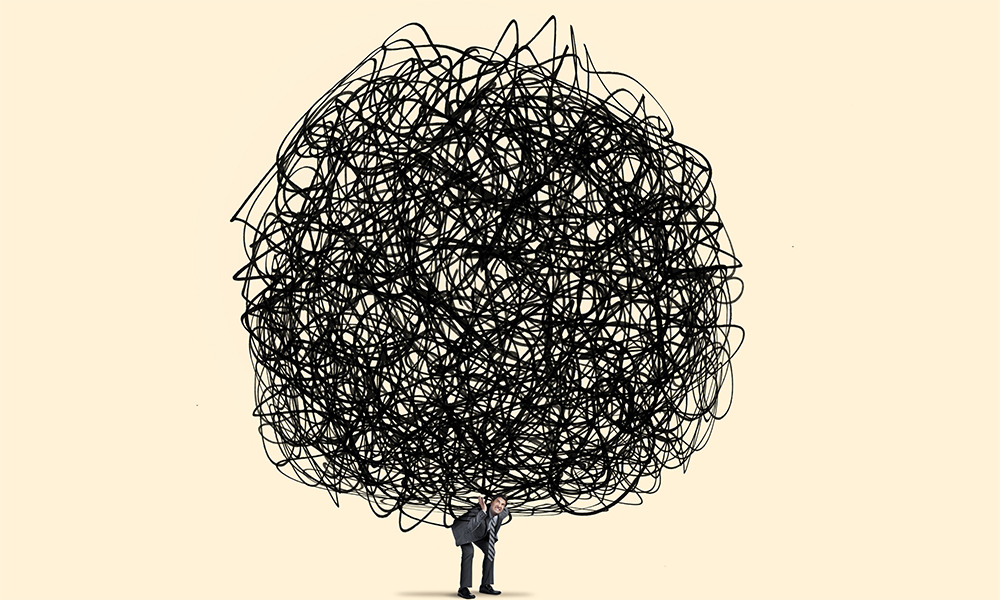The general expectation that most managers have is to seek a new role (and in many cases, even push for a promotion) every 3 years or so. The HR approach in many companies also perpetuates this mind set. The ostensible thinking behind this philosophy is that the 3-year-movement cycle is necessary to provide a breadth of experience to aid individual growth.
I have often wondered – why do so many of us have this 3-year expectation/itch to switch roles? And could this desire to hop roles come in the way of sustained learning and development?
About a year back, ChandramouliVenkatesan (Mouli, as most of us call him), a seasoned FMCG veteran, facilitated a few sessions with our managers called “Tee Off with Mouli” (Mouli, as you can guess is also an avid golfer). In these inspiring sessions, he talked about the idea of converting time to experience and learning cycles. The sessions were such a hit that we urged Mouli to put it all down in a book. Turns out, that he was already working on that. And last week, Mouli released his book, called “Catalyst” (https://www.amazon.in/Catalyst-Chandramouli-Venkatesan/dp/0143442473). It is an insightful and thought-provoking read on the various catalysts that you can cultivate and leverage to propel you in your work and life.
So, drawing from this, my message this week focuses on learning cycles and why they can be so powerful for personal growth.
To start with, what exactly is a learning cycle?
Mouli uses the example of a new product launch to describe how learning cycles work:
That learning cycle starts with the process of identifying the need for a new product, building a business proposal for it, going through the product development cycle, including prototyping, reproaching and testing as required, building the manufacturing or service capabilities required and then launching it into the market. The learning cycle ends after the launch, when the new product has stabilised in the market, and corrective action, if required, has been taken. This whole thing end-to-end, is one learning cycle.
Any routine, initiative or transformation in your company could potentially turn into a learning cycle. The power lies in how you make it a transformative experience to leverage and drive personal growth and learning.
You can look for this in pretty much any function or role that you’re in. If you work in HR, this could be a large-scale organisational structure or culture change. In Sales, this could be distribution expansion. In Supply Chain, it could involve rejigging the current production system. In IT, it could be launching a new enterprise software.
This idea of building an “experiential learning algorithm” was first propounded by American educational theorist, David A. Kolb. There is a four-stage process to how holistic learning happens:
Stage 1 – Concrete experience (Do), where you actively experience an activity
Stage 2 – Reflective observation (Observe), when you consciously review or reflect on the experience
Stage 3 – Abstract Conceptualisation (Think), where you conclude or learn from the experience
Stage 4 – Active experimentation (Plan), where you plan or try out what you have learned
Think about it. Unless you go through all these stages, your learning and full experience may be limited. And these 4 stages could take longer than 3 years, in many cases. Therefore, it is a myth to assume that if you spend 5 years at work, then you have 5 years of experience. Somebody could derive 3 years’ worth of experience from that, and somebody else could derive 7 years’ worth of experience from the same time period. Mouli argues that one of the greatest differences between successful people and less successful people is their effectiveness of converting time to experience. Successful people convert time to experience more effectively than others. And this conversion of time to experience requires you to go through full learning cycles.
Can you create a learning cycle for yourself?
There are many ways in which you could have landed up in a learning cycle. It could’ve been a bit of luck and being at the right place at the right time. Or maybe you were proactive and actually went out seeking the opportunity. Or perhaps you created something transformative as part of your day job and then went on to lead the project. Mouli’s research suggests that irrespective of how you came about the opportunity, having it definitely gives you an edge when it comes to being successful.
If you get the chance to be a part of a learning cycle early on in your career, that of course works much better. So, if you want to make this possible, what can you do? Here are some suggestions:
- Keep your eyes and ears open. With so much happening around, there’s bound to be opportunities everywhere. Being able to identify them is the first step.
- Once you come across something interesting, think about where you could fit in. Does this match your skillset? Will it add specific exposure that you’re looking for? Find the reason and then try to become a part of it.
- This one is a little tougher, but worth a shot anyway. Be the start yourself. Conceptualise a transformative idea (a potential learning cycle) as part of your day job and then go on to lead and grow that.
How can you make the most of a learning cycle?
Successful people seem to get more out of the learning cycles they participate in than less successful people, says Mouli. So, what does it take? He offers thesefour suggestions:
1. Effective TMRR Application
The more effective the Target, Measure and Review (TMR) application, the more someone can extract from a learning cycle. TMR here, is a way of measuring success. However, what is critical to differentiate between, is organisational TMR and individual TMR. Mouli suggests doing this by adding an additional ‘R’ to the process – making it TMRR – here the ‘R’ stands for ‘Reflection’.
A major learning cycle for an individual is also more likely than not, a major project or initiative for the organisation. So, the organisation will always have a very rigorous TMR process for it. Sometimes, given the rigour of the TMR process for the project, people often mistakenly assume that it is enough. That the TMR process for the project is also building experience for you as an individual. But it is not necessarily true. Extracting the best possible experience is something that you have to do for yourself. And reflection helps this. So, introspect and ask yourself: ‘What could I have done better in this learning cycle opportunity that I got?’.
2. Be at your best
This has to be one of the most important things you’re doing. Treat it as such. Increase the intensity of your engagement and prioritise this learning cycle over your other daily activities. Mouli uses the example of great artists, as those who are able to raise their performance above their mean when they get a big stage. They instinctively realise that they have to be at their very best on the big stage – that their daily normal won’t be good enough. Successful people are the same. They realise the amazing potential of this opportunity and push themselves to really outperform and raise their individual bar on performance. They will spend much more time on these projects, they will focus so that they can give their best their best in terms of concentration, creativity, communication and the TMRR mentioned earlier.
3. Broaden the lens
Often, we limit ourselves to the contribution required by our role. While we may think this focuses our efforts, there’s a chance that it also silos us. Successful people see these learning cycles as chances to broaden their engagement beyond the scope of their current role and expertise. You will find them making efforts to engage more holistically. Given just how fluid roles and careers are becoming today, this can therefore be an incredibly strong leaning opportunity for multiple reasons. So, consider broadening your TMRR question to: ‘What could I have done better to make the project succeed holistically?’
4. Be the thought leader
Project leadership, as Mouli points out, is different from thought leadership. So, another great way to maximise a major learning cycle, is to try and contribute at the thought leadership level. Move beyond just project leadership here. These are also typically projects where organisations are looking for powerful ideas and thoughts, irrespective of where they come from. It won’t necessarily be hierarchy driven. Leverage that and push yourself to find ways to maximise your contribution. By doing so, you will also be able to assess your ability to operate at a higher level and identify what you need to improve to someday lead one of these learning cycles.
I’m sure that many of you have participated in learning cycles. It would be great to hear about your experiences and how you believe they have crafted your growth journey.
And do buy a copy of Mouli’s book to read more about this and many more rich perspectives.








Comments